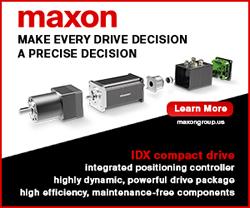Survey: Retailers fast-tracking robotic automation technologies in the wake of COVID-19
One in four retailers say they currently have an in-store robotics project underway, and nearly half say they will be involved in one in the next 18 months, according to new RetailWire survey
The retail industry is looking to adopt new robotic technology faster than expected due to the COVID-19 pandemic, with widespread adoption now expected in just a few years, according to a new survey conducted by RetailWire and Brain Corp, an artificial intelligence (AI) company creating transformative core technology in robotics.
The results of the survey, conducted last month, underscore the growing significance of robotic automation technology in the post-pandemic marketplace. These technologies are seen as key for assisting workers with a variety of tasks, from floor cleaning to shelf scanning, both in stores and in warehouses. The full survey results are included in a free executive summary, "Robots in Retail: Examining the Autonomous Opportunity."
64% of retailers believe it is important to have a clear, executable, and budgeted robotics automation strategy in place in 2021, including 77% of large retailers.
Nearly half of the respondents say they will be involved with an in-store robotics project within the next 18 months.
73% of large retailers say the importance of using robotics in warehouses or distribution centers has increased due to factors that emerged during the pandemic.
Other pandemic factors that influenced a change in thinking included the need to provide a safer, cleaner store for shoppers; the need for enhanced social distancing; and the need to improve on-shelf inventory availability.
Cleanliness became a major priority for retailers and grocers during the pandemic as stores rushed to meet heightened consumer expectations. The survey shows that these increased cleanliness standards are the new normal: the vast majority (72%) of respondents say they do not anticipate much change in consumer expectations toward in-store cleanliness even after vaccines are broadly distributed.
The survey also shows that retailers are looking to use robotic solutions for in-store functions like automating tasks and collecting environmental data for improving customer experiences. This includes robotic applications for scanning shelves for stockouts (59%), order picking (47%), delivering goods from the back warehouse to store shelves (35%), pricing accuracy checks (35%), and more.
"The global pandemic brought the value of robotic automation sharply into focus for many retailers, and we now see them accelerating their deployment timelines to reap the advantages now and into the future," said Josh Baylin, Senior Director of Strategy at Brain Corp. "Autonomous robots are versatile productivity partners that help keep stores clean, generate additional hours for employees, and help improve in-store customer experiences."
The survey findings are consistent with the growth that Brain Corp saw in 2020 for robotic deployments with its OEM partners. The company achieved an increase of over 300% in robotic deployments last year, many in retail stores, while generating an estimated 3.3 million hours in productivity for end customers.
While robotic technology in retail has slowly been gaining steam over the years, RetailWire said it found the new accelerated adoption trends expressed in the survey "stunning" and "surprisingly large."
"These are not the kinds of numbers indicative of an emerging technology in an early phase of deployment in retail, but of a technology just a few short years from widespread adoption," according to the report. "In fact, as robotic technology gains a foothold in-store operations, broader benefits are likely to fuel future growth, such as the ability to capture granular, real-time data about products on shelves and customer buying patterns, monitor pricing and planogram compliance and keep tabs on out-of-stocks. Armed with this kind of data, retailers will be able to discover actionable insights, make smarter decisions and increase store productivity."
The survey queried 136 respondents in the retail industry, including retailers and wholesalers, retail consultants, tech solution providers, and brand marketers and manufacturers. For further information, download the free executive summary, "Robots in Retail: Examining the Autonomous Opportunity" or go to www.braincorp.com.
About Brain Corp
Brain Corp is an AI software leader that powers the world's largest fleet of autonomous mobile robots operating in commercial indoor public spaces. The BrainOS® platform and its cloud-connected autonomy service are used by global manufacturing partners to successfully build, deploy, and support commercial robots at scale across industries and applications. Through intuitive software and controls, BrainOS also enables end customers to easily leverage the power of robotics to offload repetitive, labor-intensive tasks related to floor care, in-store inventory delivery, and shelf-scanning, freeing employees' time to focus on higher-value responsibilities. Working with its partners, Brain Corp has deployed over 14,500 robots within retail, grocery, malls, airports, hospitals, warehouses, and other industries. For more information, please visit www.braincorp.com.
Featured Product

The maxon IDX Compact Drive with Integrated Positioning Controller
The compact brushless EC-i motor combined with an EPOS4 positioning controller delivers a highly dynamic, powerful drive package with field-oriented control (FOC), high efficiency, and maintenance-free components in a high-quality industrial housing. The maxon IDX drives are suitable for use across the entire speed range (from standstill to maximum speed) and have an extremely high overload capability. Together with a positioning controller, the integrated sensor (single turn) enables absolute positioning.
